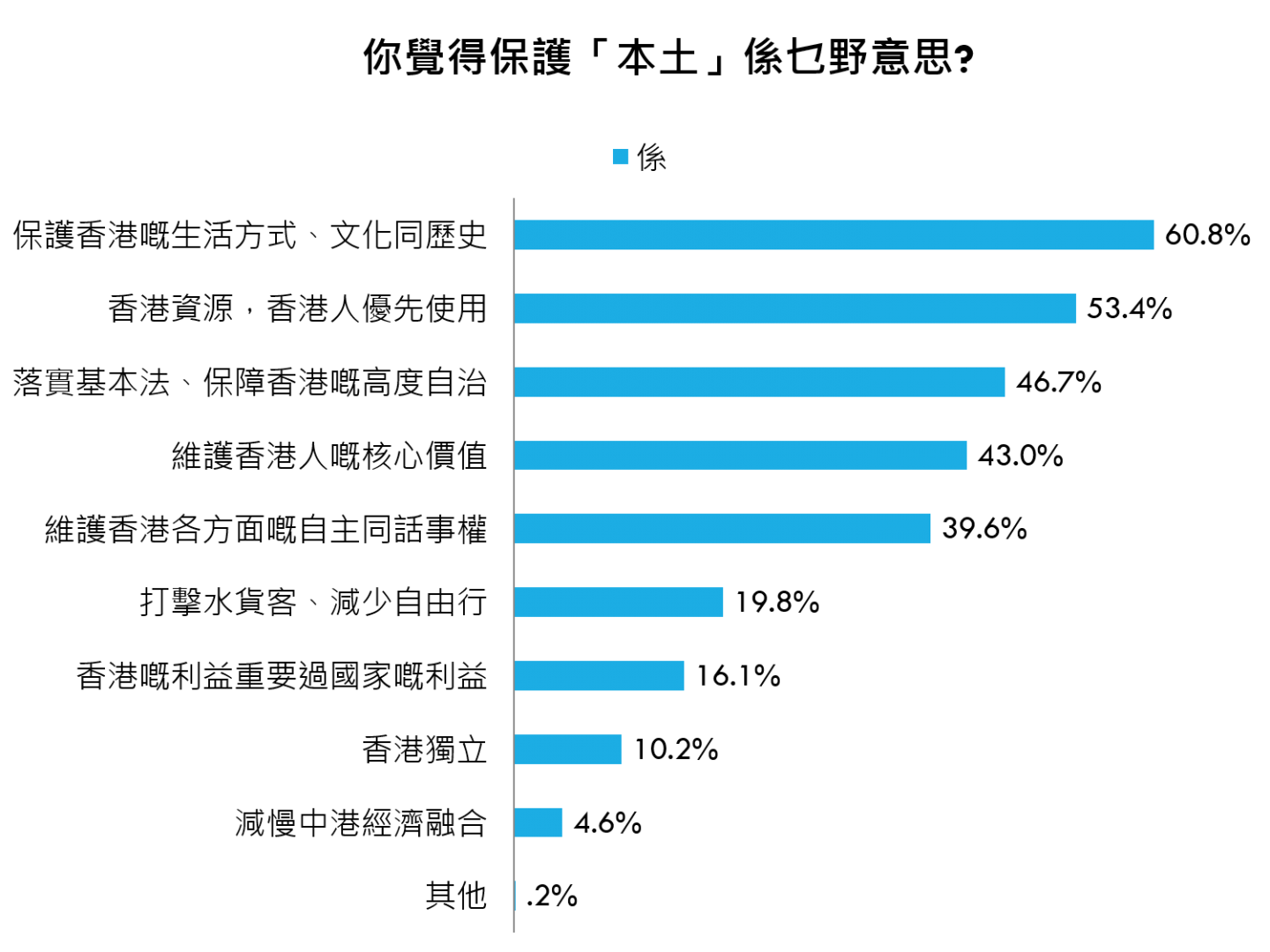Policy Advocacy
PoD Survey on “Hong Kong Political Culture in the Post-Umbrella Movement Era” (2016)
In recent years there has been drastic changes in the political atmosphere in Hong Kong but they have not been thoroughly examined. In a large-scale survey initiated by Path of Democracy, it is found that most Hong Kong people oppose violent protest and do not identify localism with independence—the mainstream sees localism as safeguarding Hong Kong’s way of living, culture, and history. Path of Democracy considers mainstream Hongkongers disagree upon the use of extreme measures to fight for democracy as well as the proposition of Hong Kong independence, despite the advocacy of such views by certain individuals. Path of Democracy therefore advises that Beijing should remain pragmatic when dealing with such issues and correctly identify localism with that being accepted by the mainstream.
Path of Democracy has commissioned Policy 21 earlier to conduct a household survey titled “Survey on Hong Kong Political Culture in the Post-Umbrella Movement Era” from February 15 to April 5, aiming to understand the respondents’ view on political reform, methods of protest, and localism. 1,016 Hong Kong citizens over the age of eighteen were interviewed in a face-to-face manner using two stage sampling, with a success rate of 61.8%. Among the respondents, 62.8% are born in Hong Kong. 17.3% are between 18 and 29 years old; 27.4% between 30 and 44; and 29.3% between 45 and 59. Over 15% of the respondents have received tertiary education. The ratios correspond to those in the 2015 Population Census.
The survey shows that “the Chief Executive and his political appointees” and “the central government” should bear the greatest responsibility for the failure of political reform, among which 27% and 10.6% of the respondents believe so respectively. And 5.3%, 4.4% and 1.5% of them think “the Pan-democrats”, “the Occupy Central trio”, and “the students and youths” should bear the greatest responsibility respectively.
Besides, it was deemed necessary by 56% of the respondents that Beijing should reopen the discussion on the political reform. And 74.5% of the respondents think it should be reopened “as soon as possible”.
With respect to the approaches of resolving Hong Kong’s democratization question, 52.6% and 26.2% of the respondents consider communication and dialogue with Beijing “important” and “very important” respectively, against those who deem “unimportant” and “very unimportant” that total 4.2%. Moreover, 63.2% of the respondents feels that the Pan-democrats should attend the meeting with the Central Government on political reform issue in the Mainland if the Central Government makes such an invitation; 6.3% think civic and social groups and organizations should be first consulted before the Pan-Dem attending these meetings and 5.2% do not think they should attend at all.
Regarding whether the politically moderate and centrist groups are essential in facilitating political reforms, 58.5% of the respondents find them essential and 13.8% do not.
Concerning how Hong Kong people view violent protest methods, the survey shows that the mainstream does not support using violence as a method of protest. Among various options, “participating in rallies, demonstrations, marches, protests without consent from the police” is the most accepted way of struggle and protest (totalled 33%), followed by “occupying public areas”, “occupying government buildings”, ”throwing objects to government officials and opponents” that vary from 19.4% to 14.1%. Even so, those who accepts “calling for assault”, “assaulting the police”, and “using violence” as methods of protest only constitute 7.9%, 7%, and 6.9% of the respondents respectively.
With regard to the above protest methods, the acceptance rate of the 18-29 age group is significantly higher than the overall responses. When they were asked whether they have employed assault as a means for their political demands in the last 3 years, 12% said they have never done so but will do if necessary; 79% stated that they haven’t done so and won’t do it either. The figures are 6.9% and 88.9% respectively when it comes to the overall responses.
With respect to the respondents’ views on localism, the results illustrate that the mainstream sees localism principally as safeguarding Hong Kong’s culture and high degree of autonomy. Among the options, “safeguarding Hong Kong’s way of living, culture, and history”, “Hong Kong people has higher priority in the use of Hong Kong resources”, “the implementation of the Basic Law and the guarantee of a high degree of autonomy in Hong Kong”, “preserving the core values of Hong Kong”, and “safeguarding various aspects of Hong Kong’s autonomy and say” are the options which the respondents find most consistent with their understanding of localism, varying from 60.8% to 39.6%. Conversely, those who associate localism with independence takes up only 10.2%. The result also shows that respondents in the age group of 18 to 29 are more prone to recognize localism as such.
Based on the survey results, Path of Democracy offers three conclusions and recommendations: first, if the political reform issue is left unresolved, it is unlikely that there will be fundamental improvements to Hong Kong’s governance. Hence Beijing must actively seek dialogue with Hong Kong society including the Pan-democrats in order to reopen the political reform. Second, despite that certain individuals advocate the use of extreme measures to fight for democracy, it is clear that the mainstream disapproves such practices and generally looks forward to a peaceful solution to the problem. Third, Path of Democracy recommends Beijing to look at the localism issue from both Hong Kong and pragmatic perspectives and to correctly identify the form of localism widely accepted by the mainstream in Hong Kong that centres on the maintenance of Hong Kong’s way of living and culture, Hong Kong people has higher priority in the use of Hong Kong resources, preferential treatment for Hong Kong people in the use of local resources, and the requirement of Beijing to observe its commitment to Hong Kong’s high degree of autonomy.

 EN
EN Login
Login Donation
Donation


 Back
Back